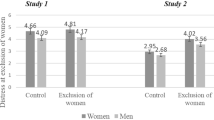Abstract
In The Epistemology of Groups, Jennifer Lackey investigates the conditions for the possibility of groups telling lies. Central to this project is the goal of holding groups, and individuals within groups, accountable for their actions. I show that Lackey’s total account of group phenomena, however, may open up a means by which groups can evade accusations of having lied, thus allowing them to evade responsibility in precisely the way Lackey set out to avoid. Along the way, I also take note of some interesting implications of Lackey’s view: that it makes groups uniquely susceptible to a lack of self-knowledge and that it creates an interesting mechanism by which groups can lie to themselves.
Similar content being viewed by others
Notes
I am skipping over some important details here: insofar as members of the group may not even think of groups as the sorts of things that have beliefs, it may be false, read de dicto, that they, and therefore the group, have any beliefs about the group’s beliefs at all. It would already be a notable consequence of Lackey’s view if groups systematically failed to have beliefs about their own beliefs in this way. But I am assuming here that some sort of de re reading of group belief statements will suffice to allow Lackey’s view to generate affirmative conclusions about reflexive higher-order group beliefs.
References
Bratman, M. E. (1993). Shared intention. Ethics, 104(1), 97–113.
Evans, G. (1982). The varieties of reference. Oxford: Clarendon Press.
Gilbert, M. (1989). Social facts. Princeton University Press.
Huebner, B. (2014). Macrocognition: A theory of distributed minds and collective intentionality. Oxford University Press.
Lackey, J. (2021). The epistemology of groups. Oxford University Press.
List, C., & Pettit, P. (2011). Group agency: The possibility, design, and status of corporate agents. Oxford University Press.
Pettit, P. (2003). Groups with minds of their own. In F. Schmitt (eds.), Socializing metaphysics, pp. 167–193. Rowman & Littlefield.
Tollefson, D. P. (2015). Groups as agents. Polity Press.
Tuomela, R. (1992). Group beliefs. Synthese, 91, 285–318.
Author information
Authors and Affiliations
Corresponding author
Rights and permissions
Springer Nature or its licensor (e.g. a society or other partner) holds exclusive rights to this article under a publishing agreement with the author(s) or other rightsholder(s); author self-archiving of the accepted manuscript version of this article is solely governed by the terms of such publishing agreement and applicable law.
About this article
Cite this article
Hyska, M. On group lies and lying to oneself: comment on Jennifer Lackey’s The Epistemology of Groups. AJPH 2, 73 (2023). https://doi.org/10.1007/s44204-023-00128-5
Received:
Accepted:
Published:
DOI: https://doi.org/10.1007/s44204-023-00128-5




